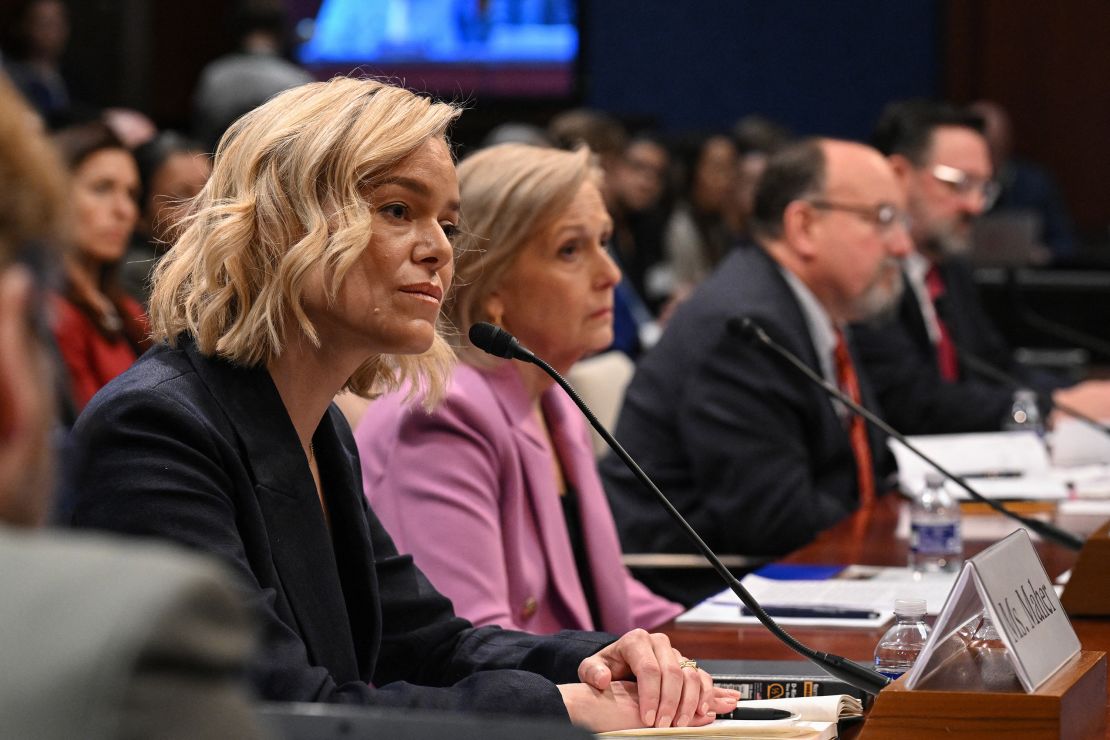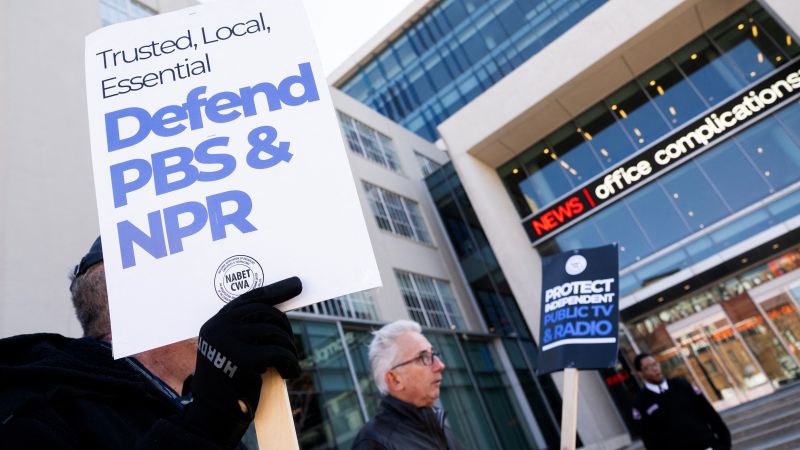CNN
—
America’s two biggest public broadcasters, PBS and NPR, are facing an up-or-down vote over their federal funding for the first time in decades.
The Trump administration sees it as a worthwhile cultural fight, casting PBS and NPR as wastes of money that “spread radical, woke propaganda disguised as ‘news’” in a statement earlier this week.
Station leaders assert that if you tune in, you’ll see that the White House’s portrayal is just plain wrong.
“There’s nothing more American than PBS, and our work is only possible because of the bipartisan support we have always received from Congress,” PBS CEO Paula Kerger said in a statement.
Without the federal funding, some local stations could be forced off the air, especially in rural areas that are Republican strongholds. In many cases “these are the last locally owned broadcasters in these communities,” Ed Ulman, the CEO of Alaska Public Media, told CNN.
So station leaders from Alaska to Maine are rallying public support and lobbying persuadable lawmakers, hoping to fend off the funding threat.
“The plan is to remind people of the value proposition,” said Jim Schachter, the CEO of New Hampshire Public Radio.
In Schachter’s view, the Trump White House’s attempt to defund NPR and PBS is part of a wider effort to control information and clamp down on independent news coverage.
“This is not about the money,” he said. “It’s a minuscule amount of money in the federal budget, though it’s critical to meeting public media’s civic responsibilities. This is about attacking a free press.”
At an annual cost to taxpayers of $535 million, or roughly $1.60 per American taxpayer, stations provide free and universal access to educational shows, emergency alerts and a wide array of news and cultural content.
Normally the funding is a barely-noticed line item in a gigantic budget bill. In fact, the funding bill passed by Congress and signed into law by President Donald Trump last month included another $535 million for the Corporation for Public Broadcasting, the entity that disburses funds to 1,500 local radio and TV stations.

Congress budgets money for public broadcasting two years in advance, so there is nearly $1.1 billion currently allocated for the future – and that’s the amount the Trump administration wants to take back.
In a Fox News appearance on Tuesday, Trump’s budget chief Russ Vought confirmed that the administration will send a rescission proposal to Congress at the end of April.
Such a proposal would start a 45-day clock for the House and Senate to either vote to cut the funding or ignore the proposal and keep the funding intact.
On Fox, Vought said “we’re really excited about” defunding public media, justifying the proposal by claiming PBS and NPR are “putting drag queens in children’s programs, doing documentaries pushing for reparations, and dividing the country on the basis of race.”
Republicans made the same charges at a House hearing last month. Public media executives debunked some of the claims; for instance, “the drag queen was actually not on any of our kids shows,” Kerger testified, pointing out that an image was cherry-picked from a single station’s website, and “it was immediately pulled down.”
The White House published a list of grievances with public media earlier this week. The list contained news reports about race, sexuality and gender identity along with many allegations of liberal bias.
Public media leaders want to reframe the discussion altogether. After all, stations carry a wide array of radio and TV programming, from award-winning newscasts like “Morning Edition” and magazine shows like “Fresh Air” to educational programs like “NOVA” and children’s staples like “Sesame Street.”
“Without PBS member stations, Americans will lose unique local programming and emergency services in times of crisis,” Kerger said in a statement.
NPR similarly highlighted its “trusted local and national news, culture, lifesaving emergency alerts, and public safety information.”
In the country’s northernmost state, Alaska Public Media operates a radio station in Anchorage and partners with 26 locally owned and operated radio stations, which reach almost every corner of the frontier. Those stations combine to form Alaska’s only statewide news network, which employs nearly 60 journalists, Ulman said. “It is fair to say that many of these stations will close if federal funding is eliminated,” he said.
That’s because smaller outlets tend to need more federal support.
This year Schachter’s stations in New Hampshire will get $542,000 from the Corporation for Public Broadcasting – less than 6% of his $10 million budget. He said the federal funds “give us a solid starting point” and enable the stations to raise more money from listeners, foundations and other sources. “We fight every day for every dollar,” he said.
If the federal dollars dried up, “the knock-on effects would be huge,” Schachter said.
That’s because, in addition to the direct support to local stations, the nationwide system provides for satellite connections, content management platforms and even music licenses.
With fewer stations able to pay dues and pick up syndicated programming, the system could start to fall apart, executives warn.
That’s exactly what longtime conservative critics of PBS and NPR want to see happen. But public media executives are banking on public support, which they hope will translate to Republican votes to protect the funding.
In a recent Pew Research poll, only 24% of adults said the government should stop funding public media, while 43% said it should continue and 33% were not sure.
“The majority of Americans think it’s worth the $1.60 that they pay in taxes,” Ulman said.
In the coming weeks, advocates for the networks will also point to the ongoing cutbacks in for-profit local news coverage to argue in favor of public media.
“The commercial marketplace for this kind of civic-minded, community-building, public service journalism is broken,” Schachter said.

